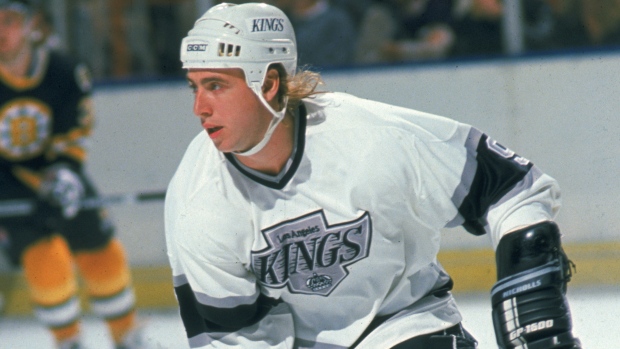Dec 30, 2015
After NFL court victory, NHL hopes judge in concussion case follows suit
The National Hockey League is hoping to repeat the NFL's victory in getting a lawsuit from its former players dismissed by a court. In an initial lawsuit filed last year, a group of more than 40 players contended that the NHL did not do enough to protect them from head injuries. As TSN Senior Correspondent Rick Westhead explains, the NHL hopes to convince a judge that its CBA with the players details the proper protocol that should be followed.

In mid-December, a U.S. federal judge dismissed a lawsuit filed by more than 1,000 former NFL players who sued the league, saying its teams haphazardly gave players addictive painkillers. The judge in that case said the collective bargaining agreement between the league and its players was the appropriate way to resolve the dispute.
Days later, the NHL is hoping to rely on that NFL victory.
In court papers filed in Minnesota court and obtained by TSN, the NHL has argued that a lawsuit filed by its own players should be dismissed for similar reasons as was the NFL case.
In the NFL case, former players such as Hall of Fame defensive end Richard Dent said the NFL and its teams, doctors and trainers had withheld information about injuries and issued prescription painkillers without considering the long-term effects. But a judge dismissed the case, although it might still be appealed, saying players should go to arbitration as their CBA dictates.
Cash awards in arbitration cases are typically much lower than court judgments.
The NHL hopes to convince a judge overseeing its own case that its CBA with the players details the proper protocol that should be followed.
"Just last week, the court in Dent vs NFL dismissed the claims of retired players that the NFL had negligently allowed them to be over-treated with painkillers," the NHL said in its court filing. "In evaluating any possible negligence by the NFL…, it would be necessary to take into account what the NFL has affirmatively done to address the problem, not just what it has not done."
"The court noted the 'many steps' the NFL had taken 'to address the issue of player medical care by imposing on clubs detailed provisions in numerous collective bargaining agreements'", the NHL said. "Although there was no CBA provision that "specifically call(ed) out the prescribing of drugs and painkillers," provisions related to player health and safety generally were critical to the analysis because the "proper administration of drugs can reasonably be deemed to fall under these more general protections."
"The NHL's collectively bargained agreements address player safety and health through provisions governing medical treatment for injured players, return-to-play determinations, workers' compensation coverage and end-of-season physicals," the NHL wrote. "Moreover, unlike in Dent and the other NFL cases, the NHL has had (since 1997) a detailed collectively-bargained framework covering the subject matter underlying the negligence-based claims - the evaluation and management of concussions."
In the initial lawsuit filed in November 2013, players contended that the NHL did not do enough to protect them from head injuries before creating a committee to study head trauma in 1997. Even after that, the players charge the committee's findings were not adequately shared with the players.
The 40-some NHL players - the most prominent of whom include former Red Wings star Joe Murphy, one-time Toronto Maple Leaf Gary Leeman and former Los Angeles Kings star Bernie Nicholls - filed the suit after a group of nearly 4,500 former NFL players reached a settlement with the NFL over similar concussion-related complaints.
The NHL players claims have not been proven in court.
The league earlier said that players who were forced to retire early because of concussions and other head injuries ought to have been able to "put two and two together," thanks to a number of newspaper and magazine stories and other news reports.
The NHL has reiterated the claim that former players have waited too long to file for damages and have long been represented by a "sophisticated" players union charged by federal law to "advance their welfare."
"When a plaintiff is aware of an injury and its cause, he is charged with knowing publicly available information that could be revealed through a "reasonable search," particularly where the issue has been discussed in "the press" and medical studies are accessible through Internet searches," the NHL said.
"Plaintiffs contend that they had no burden to investigate because they relied on the NHL's allegedly superior ability to interpret medical studies," the NHL said. "But courts have squarely rejected arguments, like this one, based on a plaintiff's alleged educational disadvantage relative to the defendant - even in cases involving a ''trust relationship' between the parties (which is absent here.)"

